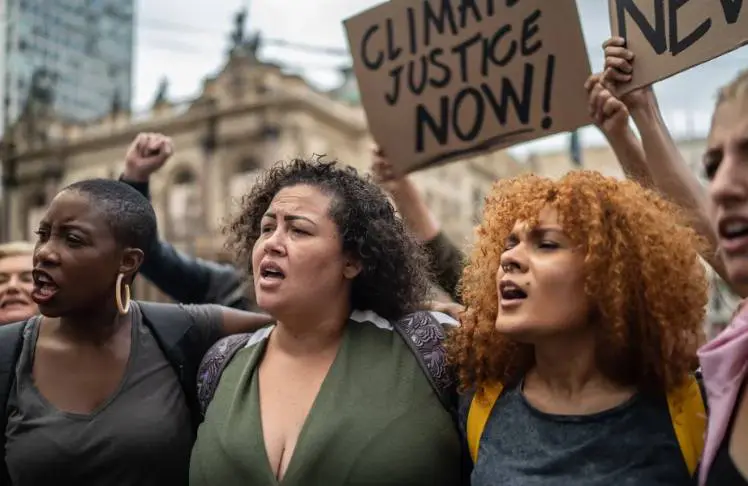
After a record-breaking storm, a river floods a waterfront neighborhood. Some parts of the town, even along the water’s edge, are spared because they sit on higher ground or are protected by flood walls and other infrastructure. Other parts of the town experience relatively minor damage.
The low-lying neighborhood not only floods routinely, but it’s also poor and predominantly Black. The flooding itself is a climate change issue, but the flooding in the Black neighborhood — and there are many such neighborhoods across the country — is one of climate justice.
A study conducted this year provides a glimpse of how the country views climate justice, and for the most part, we don’t. The annual survey, titled Climate Change in the American Mind: Climate Justice, which hasn’t previously asked questions about climate justice, found that 65% of Americans had never heard the term, while just over a third have heard of it or read a little bit about it. Researchers at Yale and George Mason Universities published the annual climate survey in September, but a more detailed analysis published last week suggests that unfamiliarity with the topic is an issue of language, not understanding.
“One major reason people are unfamiliar with climate justice is that they simply haven’t heard the term. ‘Climate change’ is already an abstract concept to most people, and ‘climate justice’ even more so,” coauthor Jennifer Carman, deputy research manager at the Yale Program on Climate Change Communication, wrote in an email.
“If you use the term ‘climate justice’ by itself, most people don’t really know what to think,” Carman said.
Just 12% of Black adults were familiar with the concept of climate justice.
But that changed after survey respondents were given a definition, which reads in part: “Climate justice refers to the idea that global warming affects everyone, but certain communities are harmed more than others, especially low-income communities and communities of color. The goals of climate justice are to reduce these unequal harms, include these communities in decision-making, and ensure they receive a fair share of the benefits of climate action (such as good jobs, cleaner air and water, better health, etc.).”
Given that context, support skyrocketed, and that was particularly true for groups who have the most at stake in matters of climate justice, including Black and brown Americans who are already disproportionately affected by climate change. The survey found that just 12% of Black adults were familiar with the concept of climate justice, but after reading a description of the concept, 70% said they supported it — the highest of any group.
As Carman said, “many people don’t realize there’s a connection between their own experiences and climate injustice, but once they do, then they can and do start to understand and support climate justice.”
It’s one thing to know what climate justice is, but it’s another altogether to fight for and achieve that justice. Drawing connections between personal experiences of climate change and climate justice as a concept has proven effective at starting that process. “The organizers I talked to do this a lot, where they start with a specific local event and explain why it is part of this larger issue of climate injustice,” Carman says, “and the idea starts to take hold.”
According to the survey, 43% of adults said they would vote for a climate justice candidate over one who does not support such a concept or policies that reflect it.
Black Americans were the demographic group most likely to think about climate justice at the ballot box, with 62 percent saying they would vote for a candidate with a climate justice platform. Conversely, 21 percent said they would be “less likely” to vote for such a candidate.
The trick then seems to be introducing people to climate justice and illustrating how it plays out in their own lives, too.
“Even when people live with the reality of climate injustice every day, they don’t make the connection between their experience and the broader concept automatically,” Carman says. “And let’s be honest — there are a lot of companies with vested interests in making sure that people never make that connection. That’s why climate organizers and communicators, especially within those communities, are so critically important.”

Willy Blackmore is a freelance writer and editor covering food, culture, and the environment. He lives in Brooklyn. More by Willy Blackmore















